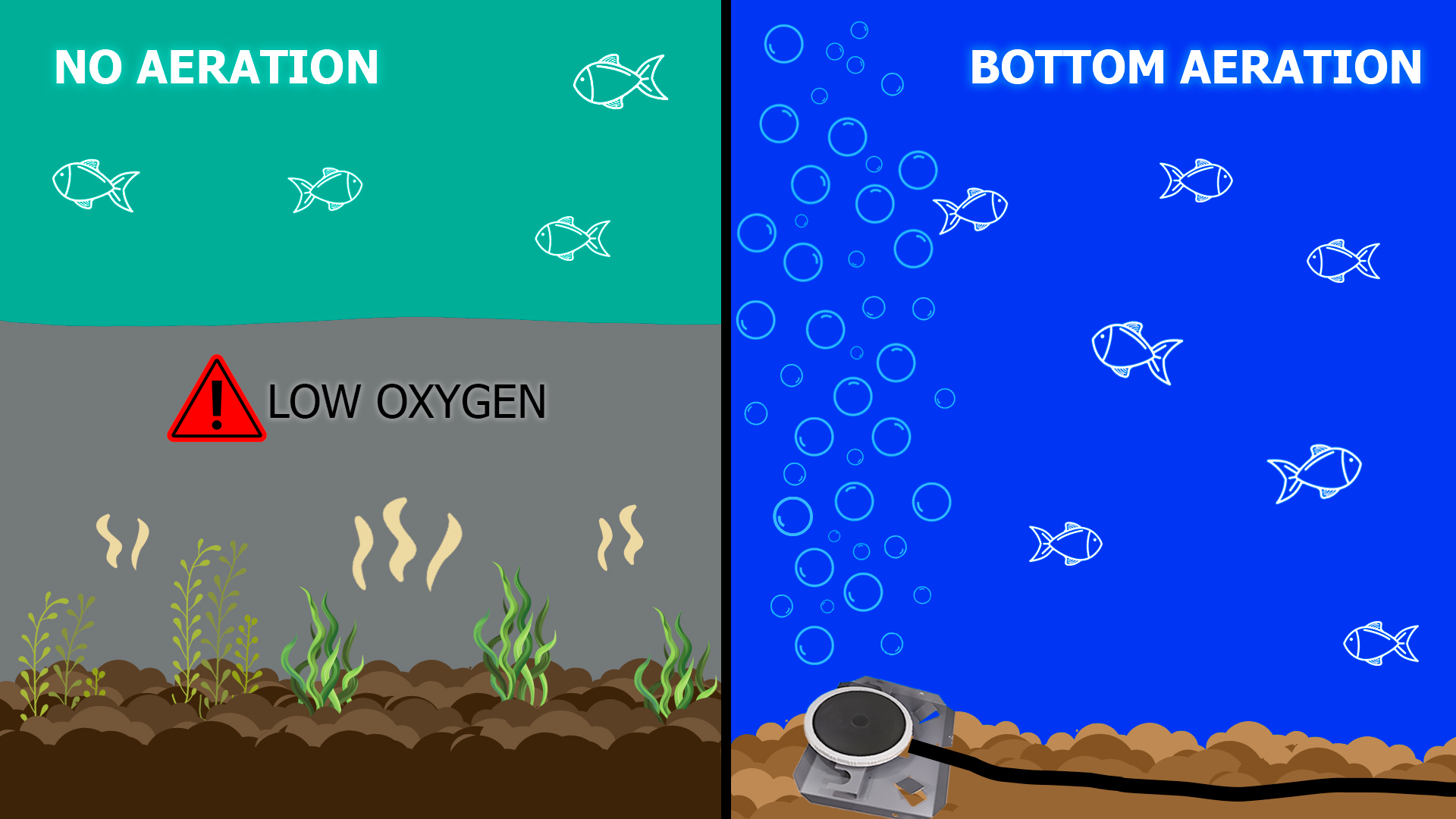Fish Management Practices
Continual production of healthy fish requires some management. Some of the key components to fish management are monitoring and managing water quality, adequate nutrition, maintaining dissolved oxygen levels.
Pond Water Quality
Healthy fish need healthy water! Pond fish can be impacted by high nutrients, pH levels, hardness levels, low oxygen, and temperature. Baseline water quality testing provides greater insight to existing issues and potential problems in the future.
Nutrients like ammonia, nitrate, and phosphate reduce water quality. When fish are stressed from poor water quality, growth and population numbers are impacted. Nutrient reduction can be achieved by introducing good bacteria and enzymes.
Feeding Pond Fish
Growing big fish requires proper nutrition. Small feeder fish and pellet food can be used together or separately, but it is important that ample food is available. The first year of growth is the most vital. Older fish with stunted growth will not yield results like young fish with an established food chain. If you haven’t considered pellet feed before, here is something to think about- two pounds of premium feed produces one pound of fish growth! For comparison, it takes ten pounds of forage fish to yield one pound of predator fish growth. WOW!!
Maintaining Dissolved Oxygen Levels
Fish need oxygen to survive. They can live in conditions where there is only 2 mg/L of dissolved oxygen. Ideally, levels should be above 5 mg/L.
The most common cause for fish loss is depleted dissolved oxygen. This occurs more frequently in ponds that do not have supplemental aeration. Some causes of sudden oxygen loss include rising water temperature, excessive weed or algae growth, recent chemical application.
The warmer water gets, the more difficult it is to retain dissolved oxygen. Weeds and algae produce oxygen during the day, but at night they consume oxygen. When chemicals are used to rapidly kill weeds, this also consumes oxygen. The chemical itself isn’t consuming the oxygen, the weeds are using up oxygen as they are decomposing.
When pond fish are living in well-aerated water they are much happier! Low levels of dissolved oxygen cause unnecessary stress. This stress impacts overall health, growth, and reproduction of the fish! By maintaining adequate dissolved oxygen, fish populations can thrive and grow.
Water quality and dissolved oxygen are buddies. When oxygen levels are up, water quality improves. When oxygen is limited, water quality declines with it. The introduction of dissolved oxygen reduces waste and unwanted nutrients and clears water,.
Fish Management
In order to grow bigger “trophy” fish, harvesting must occur. When a pond is overcrowded with fish, this restricts growth. By harvesting excess fish, whether thats an overabundance of adolescent fish, or older fish with stunted growth, this allows growing fish to thrive.
Reduce population of year old fish . This reduces competition for food. Bass require more than bluegills for proper growth. This includes but not limited to fathead minnows, shiners, crayfish. Lack of food always results in stunted growth. Supplement with grower feed to ensure proper nutrition. Maintaining water quality reduces fish stress. Happy fish eat more, and spawn more.

